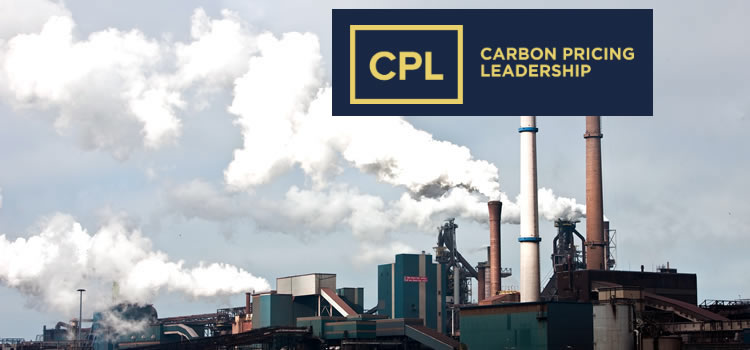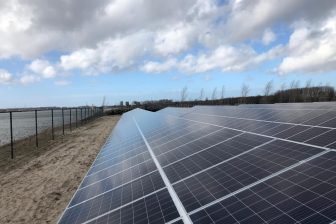Carbon pricing: Feike Sijbesma ziet keerpunt

19 april 2016 – Vandaag heeft De Telegraaf een interview met Feike Sijbesma, sinds vrijdag mede-voorzitter van de wereldwijde Carbon Pricing Leadership Coalition (CPLC). Sijbesma, CEO van DSM, ziet een keerpunt: ‘Ik denk dat wereldleiders hun eigen plannen (Parijs) serieus nemen.’ En zelf schreef Sijbesma op Huffington Post: ‘Our children and their children will thank us for finally stepping up.’
 Uit het interview van De Telegraaf
Uit het interview van De Telegraaf
‘(…) Zijn we het er dan al over eens dat er een probleem is?
„Ik denk dat niemand dat zo langzamerhand nog kan bestrijden.”
Er lijkt vooral een breed draagvlak voor maatregelen onder de politieke elite, niet bij de man in de straat.
„Mensen zijn bezorgder over snelle verandering, daar zie je direct de gevolgen van, ook via media en politiek. Op langzame bedreigingen reageren we slecht. We weten al 30 jaar dat te veel suiker, vet en zout eten niet goed is, toch groeit het aantal patiënten met overgewicht en suikerziekte elke dag. Zo is het met klimaatverandering ook.”
Doen de VS nu wel mee?
„Nog niet met een prijs op CO2-uitstoot, dat volgen ze met sympathie. Maar een paar staten, zoals Californië wel. Die lopen zelfs voorop.”
Wat gaat u concreet doen?
„De coalitie van betrokken landen en bedrijven verbreden, de verschillende systemen die er nu al in de wereld bestaan om CO2 te beprijzen harmoniseren en ze verbeteren. En vervolgens de CO2-prijs verankeren.”
Wat als bedrijven niet meedoen?
„Ik gun ieder zijn eigen Kodakmoment (de fototoestellenproducent die failliet ging omdat ze de digitalisering miste, red.). Er gaat gewoon een prijs op CO2 komen, je kunt daarbij vooroplopen en je voorbereiden op een veranderende wereld, of niet.” (…)’
Sijbesma benadrukt dat het Europese emissiesysteem niet werkt. De Europese prijs voor CO2-uitstoot staat op € 6 per ton. Dat zou volgens Sijbesma misschien wel € 40 moeten zijn. (De DSM houdt intern zelfs rekening met € 50 per ton CO2-uitstoot.)
Drie redenen waarom carbon pricing móet
Feike Sijbesma schreef in een blog op de Huffington Post waarom carbon pricing onontkoombaar is. Hij geeft er drie redenen voor.
Uit zijn bijdrage op de Huffington Post
‘(…) When the Paris agreement is formalized at a United Nations signing ceremony on 22 April, Earth Day, it is time to reflect and realize that the current plans are still not enough to limit the temperature rise to 1.5 to 2 degrees Celsius. Carbon pricing is inevitable to reach truly this ambitious goal for the following three reasons.
First, carbon pricing is a critical instrument to unlock the private capital needed for the transition from the fossil fuel to the (bio)renewable age. Putting a price on carbon makes alternative energy solutions, such as solar, the wind and advanced biofuels more competitive while creating opportunities to pursue additional low-fossil-carbon alternatives and charging the — currently cheap — fossil resources the right pollution price.
Second, by putting a meaningful price on carbon, the current generation can take financial responsibility for its carbon footprint and stop treating the planet like an undepletable bank account and transfer the bill to the next generation.
The gravest threat to humanity since the end of the cold war is now also recognized by central banks. Mark Carney, Governor of the Bank of England, recently called climate change (referring to the tragedy of the commons) a “tragedy of the horizons“ because climate impacts stretch beyond the traditional horizons of business and governments. In The Netherlands, the Dutch Central Bank concluded that a radical transition away from fossil fuels is urgently needed.
Third, the political momentum for carbon pricing is unparalleled. Around 40 countries and more than 20 cities, states and provinces are already realizing mechanisms to tax or trade carbon or are planning to do so. Some, such as Quebec and California, have already linked their trading schemes.
Already more than 400 companies are considering or already using an internal carbon price. At Royal DSM, we apply an internal carbon price of €50 per ton CO2 equivalent when reviewing large investments. I call on business to do the same: it will make your business more future proof.
Facilitated by the World Economic Forum, around 80 CEOs voiced their support for a meaningful carbon price in the run-up to COP21. The current low oil price creates the right moment to introduce a price on carbon.
Today’s reality is, many governments around the world still have direct or indirect fossil fuel subsidies. And in many jurisdictions, the carbon price is not high enough for low-carbon innovations to thrive. By sharing best practices, governments can learn from each other. (…)
Accelerated implementation of a meaningful carbon price across the globe can turn the notion of Tragedy of the Commons into an Opportunity of the Commons and create low-carbon prosperity for all. It not only makes business sense: our children and their children will thank us for finally stepping up. (…)’
Bronnen
De Telegraaf, 19 april 2016: ’Bedrijfsleven gaat betalen voor CO2’ (via Blendle)
Huffington Post, 14 april 2016: Carbon Pricing: An Inevitable Opportunity
Foto: DSM



